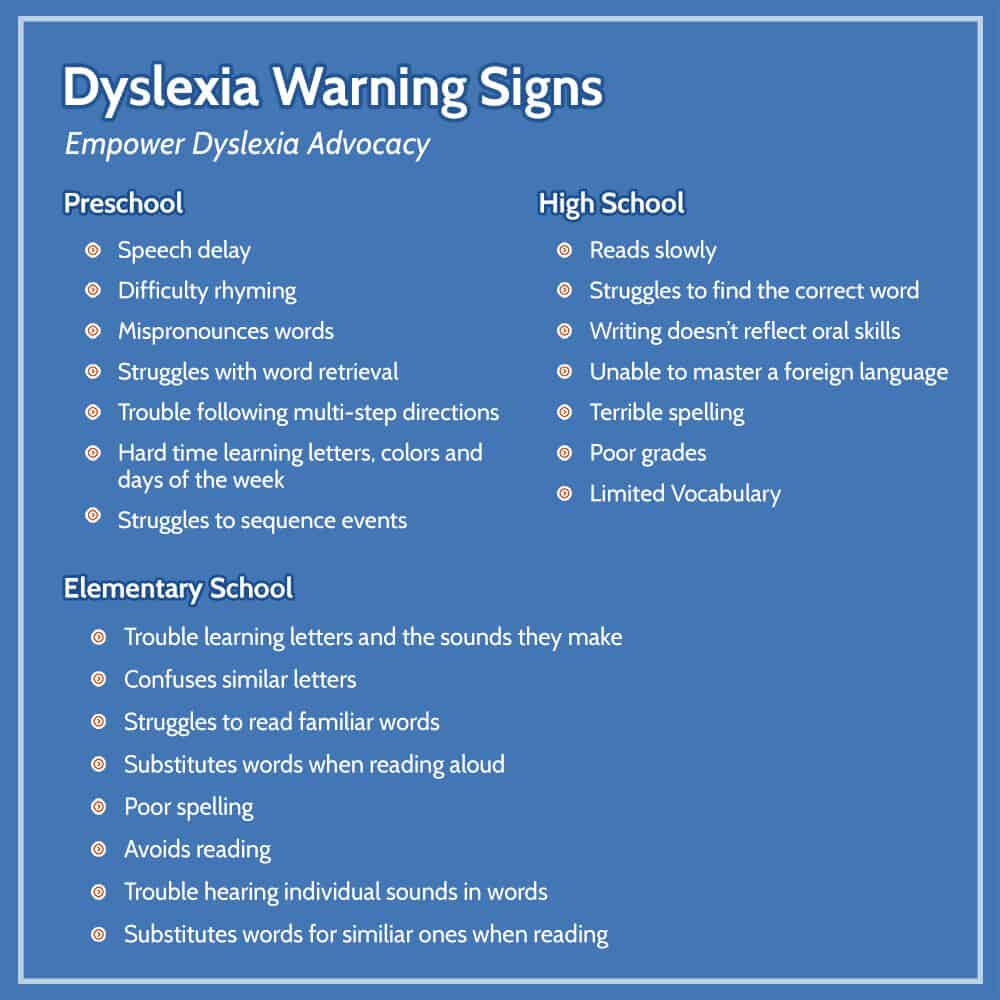When I was growing up, I thought dyslexia meant seeing or writing letters backwards. I’ve learned that it is SO much more. Thanks to our guest blogger, Renee O’Brien, for sharing her knowledge with us!
Melissa doesn’t know what to do.
Her son, Matthew, is struggling in school. Melissa has asked his teachers about his reading. They have told her he will be fine, she just needs to read to him more, that he’s still young and will catch up. And that they don’t test for dyslexia until 3rd grade. Yet, Matthew falls apart when he gets home from school. He cries while doing his homework and refuses to read because he struggles with it, except for the picture books he knows by heart. He’s also been acting out at school and has been labeled as lazy and a behavioral problem.
Sound familiar?
Unfortunately, this is the situation for many families. Dyslexia, while it is the most common learning disability, often goes undiagnosed. It is estimated that one in five people have dyslexia, yet teachers– even reading specialists–are not all taught how to identify and teach children with dyslexia.
Let’s start by talking about what dyslexia is.
The International Dyslexia Association defines dyslexia as “a specific learning disability that is neurobiological in origin. It is characterized by difficulties with accurate and/or fluent word recognition and by poor spelling and decoding abilities. These difficulties typically result from a deficit in the phonological component of language that is often unexpected in relation to other cognitive abilities and the provision of effective classroom instruction.”
In other words, dyslexia is a language based learning difference that affects a person’s ability to connect letters to sounds. This makes it hard to read and spell. A person with dyslexia will read below what would be expected, despite having normal or even above average intelligence. Dyslexia can also look different in each person and can range in severity from mild to moderate.
What are the warning signs?
So, that leaves us with what dyslexia is NOT.
-
Dyslexia is not seeing letters backwards
-
Dyslexia is not a visual problem
-
Dyslexia is not outgrown
-
Dyslexia is not a developmental delay
-
Dyslexia is not rare
-
Dyslexia is not caused by not reading to your child
-
Dyslexia is not a lack of motivation or laziness
The only way to support children with dyslexia is to first identify them.
If you feel your child is showing some of the warning signs, talk to their teacher and consider having them evaluated. You can request a comprehensive evaluation through the public school system. You start the process by writing a letter requesting a special education evaluation in every area of suspected disability. Make sure to do this in writing! I can’t stress this enough. If it’s not in writing, it didn’t happen.
All of this may sound overwhelming! But it is important to note that your child can still succeed in school with the right interventions in place.
There are trained professionals, including special education teachers, reading specialists, and speech and language therapists. They use specific, systematic, evidence-based instruction that is proven through research to help your child learn to read. Ask your school what methodology or program they plan to use and the qualifications of the provider.
As with any child with a disability, knowledge is the key!
Some of the best ways to get your child what they need to be successful:
- Be an informed advocate for your child
- Communicate with your child’s teacher
- Continually ask questions and
- Seek out new resources
Want more information on what to do if you have concerns about your child’s learning? Be sure to check out this page of our website on How to identify your concerns and talk to a teacher.
Do you know someone who can relate? Share on social and let’s keep talking.




